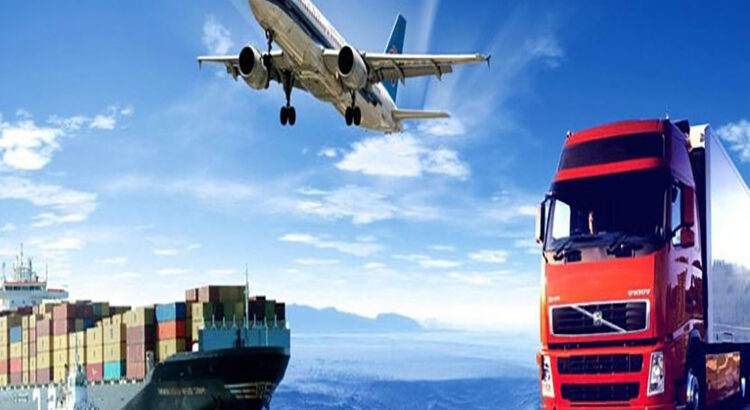Shipping cargo to India from the UAE involves navigating complex customs regulations, duties, and taxes. Whether you’re an importer, business owner, or individual sending goods, understanding these charges is crucial to avoid delays and unexpected costs. This comprehensive guide explains the key aspects of customs duties, taxes, and clearance processes when shipping cargo to India from the UAE.

1. Overview of Customs Duties and Taxes in India
India imposes various customs duties and taxes on imported goods to regulate trade, protect domestic industries, and generate revenue. The key charges include:
A. Basic Customs Duty (BCD)
- This is the primary duty levied on the assessable value of imported goods.
- Rates vary based on the product category under the Indian Customs Tariff Act.
- Essential goods may have lower BCD, while luxury items attract higher rates.
B. Integrated Goods and Services Tax (IGST)
- IGST is applied on imported goods in addition to BCD.
- The rate depends on the GST slab (5%, 12%, 18%, or 28%) applicable to the product.
C. Social Welfare Surcharge (SWS)
- A 10% surcharge is applied on the aggregate customs duties (excluding GST).
- Replaces the earlier Education Cess and Secondary & Higher Education Cess.
D. Countervailing Duty (CVD) & Anti-Dumping Duty (ADD)
- CVD is imposed to counterbalance subsidies given to foreign manufacturers.
- ADD applies if goods are imported below fair market value, harming Indian industries.
E. Customs Handling Fees
- A small fee is charged for processing and handling shipments at Indian ports.
2. Calculating Customs Duties and Taxes
The total cost of importing cargo to India depends on:
- Assessable Value (AV) – Determined as:
- CIF Value (Cost + Insurance + Freight) or
- Transaction Value (if higher than CIF).
- Customs Duty Calculation Example:
- Product Value (CIF): AED 10,000 (~INR 2,25,000)
- BCD (10%): INR 22,500
- Social Welfare Surcharge (10% of BCD): INR 2,250
- IGST (18% on CIF + BCD): INR (2,25,000 + 22,500) × 18% = INR 44,550
- Total Duty & Tax: INR 22,500 + 2,250 + 44,550 = INR 69,300
Note: Rates vary; always check the latest customs tariff.
3. Key Documents Required for Customs Clearance
To avoid delays in clearing cargo to India, ensure these documents are ready:
- Commercial Invoice (with detailed product description & value)
- Packing List (item-wise weight, dimensions, and quantity)
- Bill of Lading (B/L) or Air Waybill (AWB)
- Certificate of Origin (if claiming duty benefits under India-UAE FTA)
- Import-Export Code (IEC) (mandatory for businesses)
- GSTIN (for tax compliance)
- Insurance Certificate (if applicable)
- Customs Bond (for high-value shipments)
4. Duty Exemptions and Trade Agreements
A. India-UAE Free Trade Agreement (CEPA)
- Effective from May 2022, the Comprehensive Economic Partnership Agreement (CEPA) reduces duties on 80% of traded products.
- Eligible goods must meet Rules of Origin (ROO) criteria (minimum 40% value addition in UAE).
B. Duty-Free Allowances for Personal Shipments
- Personal Effects: Used household items may be exempt if owned for over a year.
- Gifts: Up to INR 5,000 value may be duty-free.
C. Special Economic Zones (SEZs)
- Goods imported into SEZs (e.g., Kandla, Noida) enjoy duty exemptions.
5. Common Reasons for Customs Hold or Penalties
- Undervaluation of Goods: Misdeclaring value leads to fines.
- Missing Documents: Incomplete paperwork causes delays.
- Restricted Items: Prohibited goods (e.g., narcotics, weapons) are seized.
- Incorrect HS Code: Wrong classification increases duties.
6. Tips for Smooth Customs Clearance
- Hire a Customs Broker: Experts ensure compliance and faster clearance.
- Pre-Clearance with ICEGATE: File documents online before arrival.
- Check Prohibited Items List: Avoid shipping banned goods.
- Use UAE-India FTA Benefits: Claim reduced duties under CEPA.
- Track Shipments: Use port/airport tracking systems for updates.
7. Conclusion
Importing cargo to India from the UAE requires careful planning to manage duties, taxes, and regulations. By understanding BCD, IGST, and exemptions under CEPA, businesses and individuals can optimize costs. Always ensure accurate documentation and work with experienced logistics partners for hassle-free shipments.
For frequent importers, staying updated with India’s customs policies is key to avoiding penalties and ensuring smooth trade operations.
